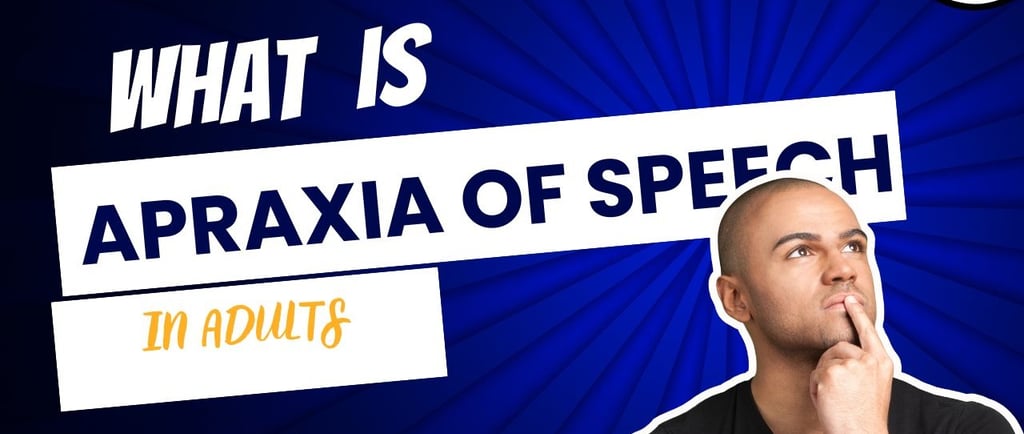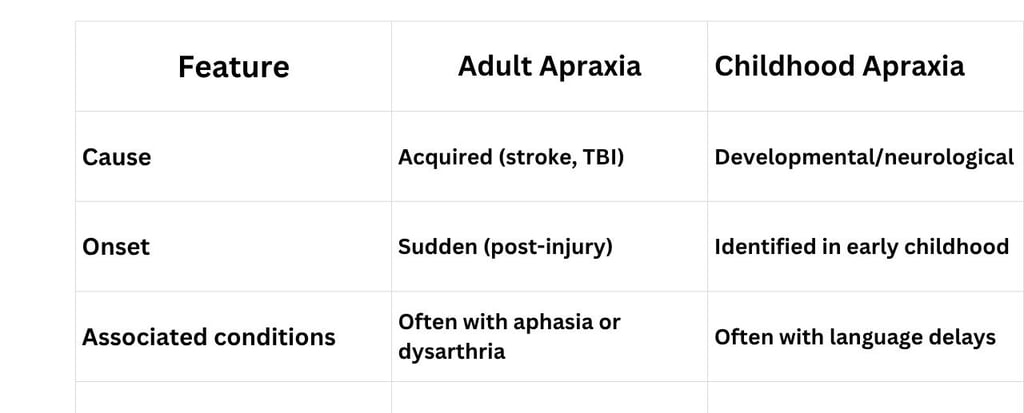Online Speech Therapy Platform
What Is Apraxia of Speech in Adults?
Understanding the Neurological Speech Disorder and How It Affects Communication
APRAXIA
selvakumar
7/21/20251 min read


Apraxia of Speech (AOS) in adults is a motor speech disorder that makes it difficult for a person to speak correctly, even though they know what they want to say. It occurs when the brain struggles to coordinate the muscle movements needed to form words and sounds — despite the muscles themselves being physically capable.
This condition often appears after a stroke, traumatic brain injury, or other neurological events, and it can significantly impact a person’s ability to communicate in daily life.
🔹 What Causes Apraxia of Speech in Adults?
Adult-onset apraxia of speech is most commonly caused by:
Stroke (most frequent cause)
Traumatic Brain Injury (TBI)
Brain tumors
Neurodegenerative diseases like Primary Progressive Aphasia
In each case, the damage affects the parts of the brain responsible for planning and coordinating the movements necessary for speech, especially the left hemisphere.
🔹 Common Signs and Symptoms
Individuals with adult apraxia may experience:
Difficulty pronouncing longer or complex words
Inconsistent speech errors
Groping or trial-and-error behavior when trying to say words
Slow speech rate
Trouble initiating speech
Better automatic speech (like greetings) than purposeful speech
These symptoms can vary in severity and may coexist with aphasia (language disorder) or dysarthria (muscle weakness affecting speech).
🔹 Apraxia in Adults vs. Childhood Apraxia
While both conditions affect speech motor planning, they differ in origin and presentation:


🔹 Diagnosis and Treatment
A licensed speech-language pathologist (SLP) evaluates and diagnoses AOS through speech assessments and medical history.
Treatment options include:
Motor-based speech therapy
Repetition and practice drills
Visual and tactile cues
AAC devices (Augmentative and Alternative Communication) for severe cases
Platforms like TelloMeet now offer teletherapy sessions for apraxia, making professional support more accessible and convenient.
🔹 Can You Recover From Apraxia?
Yes, many adults with apraxia show significant improvement with consistent, targeted therapy. The earlier the intervention, the better the outcomes. Recovery depends on the severity, the location of the brain damage, and the individual’s motivation and support system.
